Archive for June, 2011
Herbal Teas for Preventing Breast Cancer
In recent years, much research has been done on ways to prevent breast cancer and other disease. Much of the research has focused on green tea, which has been shown in many studies to have cancer preventing qualities. So much research has been done, in fact, that Japan’s medical community now calls green tea a known cancer preventative, and other medical communities are expected to follow suit.
One recent study, however, suggests that herbal teas may be effective in preventing breast cancer, too. The UK Tea Council reported on a study conducted on over 4000 French women with no history of cancer. The women were studied over a 6 year period, and received a mammogram and other cancer screening tests every two years during the period. In addition, the women were evaluated based on the particular beverages they consumed, including herbal tea, regular tea, coffee, fruit juices and wine.
By the end of the six year period, 95 of the participants had developed breast cancer. However, the study could not find any link between any of the beverages consumed and an increased risk of breast cancer. Surprisingly, however, they did find that the women that consumed herbal teas had a slightly lower risk of developing breast cancer than those women who consumed other beverages.
Herbal tea, of course, is not really tea at all. Rather herbal teas, also known as tisanes, are really infusions of one or more herbs. They are made with hot water and taken like tea, hence the name; but true herbal teas contain no leaves from the Camilla sinensis plant, the tea tree. However, herbal teas can have many useful purposes, and are used to treat many discomforts naturally.
Just as they are thought to have discovered traditional tea, it is believed that the Chinese discovered herbal teas, too. Herbs were widely used in ancient medicines, and the Chinese, were the first to combine the healing properties of herbs with the enjoyment of tea. Brewing a tea from the correct combination of herbs may simply have been the easiest way to administer the medicine.
Herbal teas were not widely used in the Western world until the last 20 years, though Asian cultures have continued to use them in conjunction with modern medicine. However, in the last few years, herbs have become popular in the rest of the world for relaxation and as alternative medical treatments.
Statistics show that today consumers spend about $120 million on herbal teas at major supermarkets, and that figure is growing at a rate of about 10% per year. So, you can see that herbal teas make up a significant portion of the beverages consumed in the Western world. Most people who drink herbal teas buy commercially produced loose teas or tea bags. And, this is considered the safest way to consume herbal teas. Making your own brew from plants you’ve picked in the wild is risky, at best.
If you’re taking prescription medication, be sure to consult with your doctor before making herbal teas part of your regular routine. Some herbs have been known to have interactions with medications. But, as long as your doctor approves, there’s no reason to avoid herbal teas, whether for health protection or just for pleasure.
There are dozens of different types of herbal teas available. In fact, one of the pieces of information not noted in the study mentioned above was what kind of herbal teas the study participants drank. But, if you’re interested in trying them, here are some of the most popular varieties.
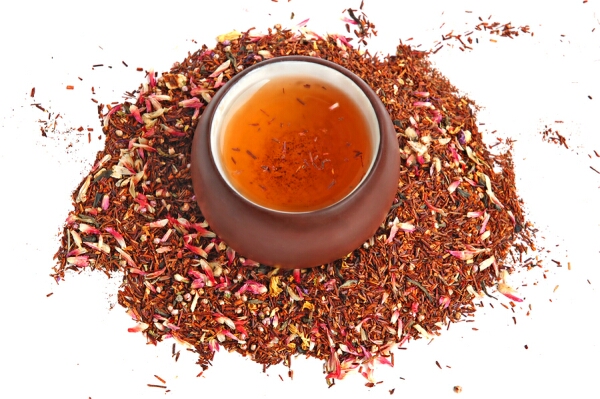
Rooibos – This is an herbal tea whose base is the South African Rooibos herb -it’s often referred to as red tea. You’ll find this tea delicious and sweet on its own, but it can also be found flavored with other fruits.
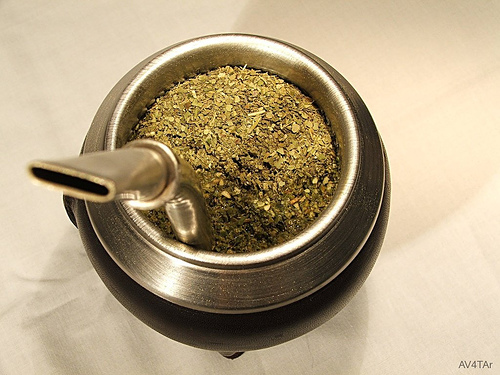
Yerba Mate Herbal Tea – This tea is made from the South American herb Yerba Mate. It is very healthy; full of anti-oxidants and vitamins and is said to give energy.
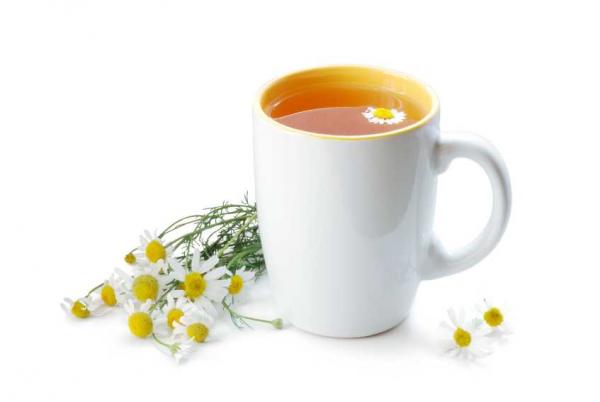
Chamomile – This is a traditional herbal tea made from the chamomile plant. Chamomile has been used for centuries to induce sleep and relieve upset stomachs.
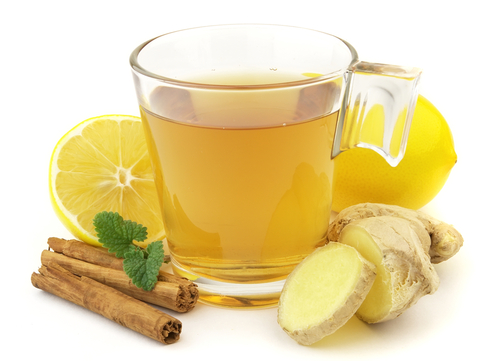
Ginger Tea – Spicy ginger has been used for centuries to make tea. It’s delicious and also highly regarded as a treatment for nausea. Ginger tea is an especially good natural treatment for morning sickness.
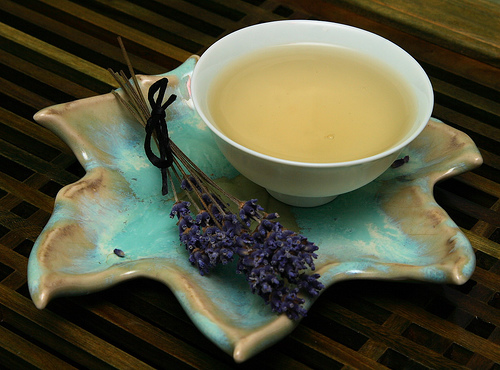
Lavender Tea – Tea made from the lavender plant has been used for many years to help calm the soul and induce sleep. A weak brew of lavender can be used to calm a colicky baby, too.
Herbal teas can be a wonderful addition to your diet. They can be used to treat minor ailments and provide a feeling of calm. And, now that there’s evidence that herbal teas may help prevent breast cancer, they can become part of your regular health protecting routine.
Protecting yourself from cancer includes living an overall healthy lifestyle. This includes getting regular exercise, eating a diet that is low in saturated fat and rich in fresh fruits and vegetables and not smoking.
Be sure to include the most potent anti-oxidants in your diet too, like those found in blueberries, artichokes, pomegranates and green tea. Following these guidelines and adding a cup or two of herbal tea, as well, can help you protect your health for years to come.
Are Herbal Supplements Necessary for Good Health?

A liniment is an herbal preparation made by infusing herbs in rubbing or grain alcohol. The liniment is applied to the skin allowing the herbs to penetrate quickly and do things such as relieving sore muscles and increasing circulation.Are herbal supplements right for you? Herbal supplements are becoming more and more popular these days. However, herbal supplements may be risky for certain individuals. Do you really need to clean out or “detox” your colon? Let us take a closer look at herbal supplements and colon cleansing. Then you decide for yourself, along with your doctor, what is right for you.
Herbal medicine is a practice that is as old as mankind, and certainly older than agriculture or writing; every human culture on every continent of the Earth has practiced herbal medicine of one form or another. Perhaps best described as “medicinal botany“, herbal medicine involves taking plants, ingesting them, and seeing if some of the elements in the plant have a palliative effect on the symptoms of the ailment.Herbalism is a traditional medicinal or folk medicine practice based on the use of plants and plant extracts. Herbalism is also known as botanical medicine, medical herbalism, herbal medicine, herbology, and phytotherapy.These medicines use plant-based materials for the treatment of specific symptoms or diseases with many herbs and herbal formulations having been used for centuries within different cultures e.g. India and China.
Herbal medicine is the medicine of the people. It is simple, safe, effective, and free. Our ancestors used – and our neighbors around the world still use – plant medicines for healing and health maintenance. It’s easy. You can do it too, and you don’t need a degree or any special training.Herbal medicine is the oldest form of healthcare and constitutes a key role in the development of modern medicine as we know it today. Back when technology was still unheard of, primitive men utilised the vast flora around them to the fullest extent, observing both plant and animal life and their components, eventually giving birth to herbal medicine. In a study by the World Health Organization on herbal medicine use, about 80% of the world’s populace still rely on herbal medicine to cure certain ailments and about 74% of the drugs we use today contain at least one botanical element. For instance, Chinese Herbal Medicine’s use of ephedrine to cure respiratory conditions still exists in the present time. Ephedrine remains an active ingredient in most of the commercial drugs that are being prescribed to relieve asthma symptoms.
It is crucial to consult your doctor before taking any type of herb, as some herbal medicines and herbal alternatives have proven to be harmful. It’s also important to remember that herbal supplements are not drugs and are not classified as such. However, herbal medicines appear to have many advantages over traditional drugs, including a lower occurrence of side effects.Herbal depression medicine is commonly promoted as a viable alternative to pharmaceutical treatment of depression. However, the final verdict on the usefulness of herbal depression medicine needs yet to be made. While the effectiveness of herbal anti depressants has to be analysed on a case-by-case basis it can be said that a general problem with assessing the potential of herbal depression medicine lies in the fact that not much clinical, statistically relevant data exists. Also, there seems to be only limited interest from medical establishment to embark on studies testing the effectiveness of most herbal depression medicine. So what is the evidence that herbal anti depressants are effective depression treatments?
5 Herbal Weight loss Options
The following article is one of a series of articles which focus on Self Improvement, Motivation and Empowerment. It is based on research done over twenty years as a personal and business coach. This self improvement article was written in response to questions which have been asked on losing weight and long term weight loss as well as address common challenges that people have with this subject. I sincerely hope that you find the following
information of value.
5 Herbal Weight loss Options
These days, there is a great need for overweight Americans to lose those excess pounds. Being healthy would not only lead them to have a healthier lifestyle but it will also literally lighten their load, and improve their overall well-being.
There is a long list of dieting options available. There are exercise programs, exercise machines, dietary supplements, dietary food and drinks, diet pills – there are even soaps which claim to help you lose pounds while you bathe.
One other available option to shed off those unwanted pounds is to go herbal.
Herbal weight loss products have been in great demand for people who want to lose weight the natural way. However, when you take herbal supplements to lose weight, you would have to wait for a longer time for the results because of the more subtle effects of medicines which came from plants and natural herbs.
Here are some herbal weight loss options that you might want to consider:
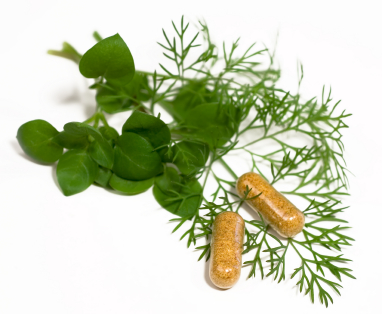
1. Herbal weight loss products
There are a lot of herbal weight loss products available in the market now. You can check out the Internet and you will find a lot of herbal weight loss pills and products.
Be careful, however, as there are some products which claim to be safe and natural because they are herbal, but some actually have side effects because of non-extensive research on the effects of these products.
Here are some ingredients and chemicals which make up some herbal weight loss products that you should watch out for, as they might have harmful effects to your health:
- Senna. This is an herbal laxative. Senna is a main ingredient in weight loss teas, and it works by stimulation the colon. The downside effect of this herb is dehydration. It can also lead to colon problems and can become addictive. Some people, when addicted, are unable to perform bowel movements without it, so watch out.
- Chromium picolinate. This is a synthetic compound found in herbal weight loss products. Chromium is a nutrient which helps regulate blood-sugar level. However, this ingredient, when taken in high doses, may cause damage in the chromosomes. It can also lead to dehydration.
- St. John’s wort. This supplement increases the production of a chemical in the brain. If not used properly, it may cause eye and skin sensitivity, mild gastrointestinal distress, fatigue and itching.
Although a lot of herbal products claim to be safe and natural, it is better to scrutinize the ingredients and research about the effects of the product itself before going for these herbal dietary pills.
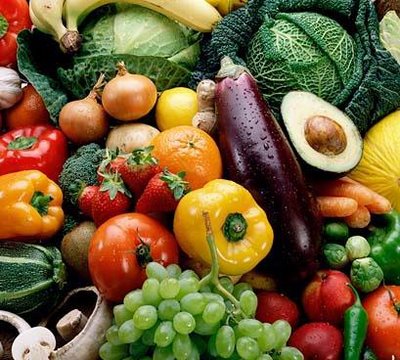
2. Organic food.
In Wichita, Kansas, organic food has found its way to more homes and restaurants. Organic food devotees believe that consuming organic goodies help their bodies as well as the environment.
A person who buys organically raised eggs and vegetables claim to be healthier, and they are not spending money on doctors and prescriptions as these keep them healthier and away from the hospital. This could also be an option for weight watchers, as organic food is known to be kinder to your weight than chemically-processed food products.
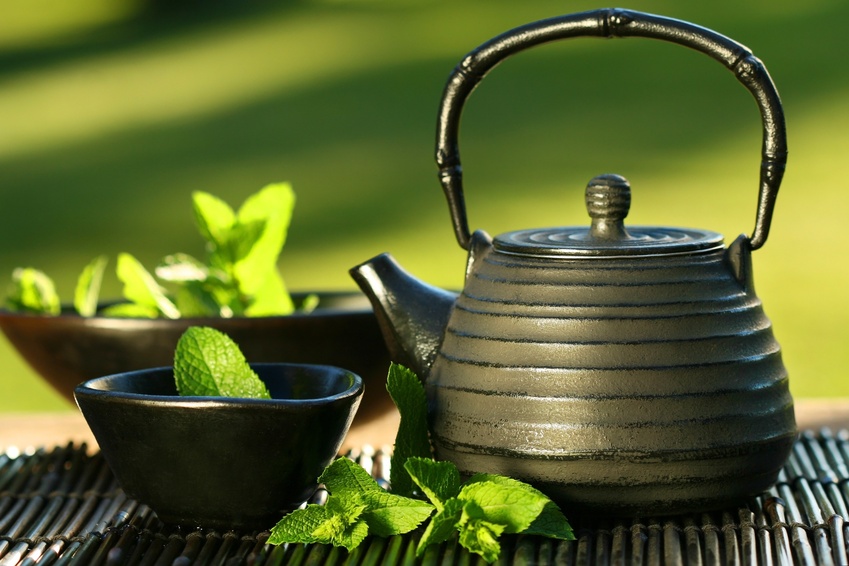
3. Green Tea.
Studies show that intake of green tea, or green tea extracts burns extra calories. Also, green tea with caffeine can increase fat burning by up to 40% thereby reducing fat.
This is one good option for those who want to lose weight. In a study done, people who took green tea were found to lose 2 to 3 times more weight than those who did not drink green tea.
These results show that green tea is a natural product for the treatment of obesity. Thus, it also makes for a healthier dietary option, not to mention the good effects that it has on the body as compared to caffeine. A cup of tea gives an emmediate energy lift without the side effects of caffeine.
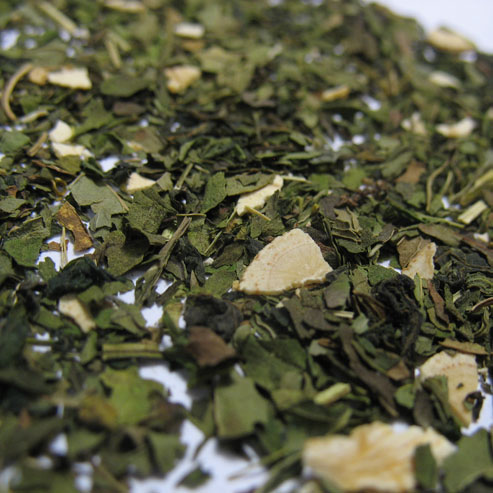
4. Immortality Herb
This herb, whose scientific name is Gymnostemna Pentaphyllum, is known to have the following benefits:
- increases healthy blood flow
- reduces artery blocks
- aids healthy blood pressure
- increases the rate of fat burning
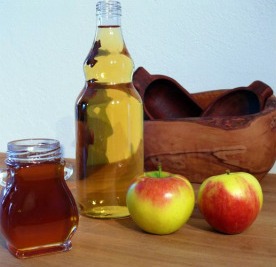
5. Apple Cider Vinegar
There are pills and food supplements whose main ingredient is apple cider vinegar. Here are the benefits of taking this herbal option:
- weight loss
- improved cholesterol level
- improved high blood pressure
- helps prevent rheumatoid arthritis
Efficient Herbal Medicine For Diabetes
Although the use of insulin has been widely regarded as the top remedy for diabetic patients, herbal medicine for diabetes is also proven to be quite as beneficial. In fact, findings reveal that native people in some parts of the world who are plagued with diabetes, fully utilize certain herbs and plants to treat the said condition. The following reveals these herbs which are commonly used as an alternative to help cure diabetes.
Aloe Vera – is a cactus-like plant also popularly known as a ‘healing herb,’ and is usually located in dry, deserted countries. Not only is Aloe Vera widely used as treatment to burns, wounds, and also applied as an after-sun lotion, but the gel and sap derived from the leaves, aids in the treatment of diabetes. This household plant is even known to lessen rapidly increasing blood glucose levels.
Ginseng – is a plant or herb possessing medicinal elements, and other antioxidants known to treat certain conditions especially diabetes. Ginseng is also classified into various plant species like the Korean and Japanese ginseng, among others. However, further studies still need to be conducted to prove the effectiveness of ginseng in treating diabetic patients.
Coccinia indica – commonly found along the Indian subcontinent, Coccinia indica is known to contain elements which replicate the function of insulin and considered a good alternative in treating diabetes. Yet, more tests still need to be done to ensure the efficiency of this herb known as the ‘ivy gourd,’ according to experts.
Opuntia streptacantha – like the Aloe Vera, this herb also exists on dry regions such as the Mexican desert, and is popularly known as the prickly-pear cactus. Scientific studies conducted on animals reveal that the plant possesses properties equipped lessening levels in postprandial glucose as well as HbI1c. Again, more studies are still required to fully support claims on the herb’s anti-diabetic functions.
Allium sativum – widely known as garlic, allium sativum is known to contain lots of antioxidants that help decrease levels of blood glucose, quite similar to the effects of insulin. It is also considered to elevate the process of secretion as well decreasing the weakening of insulin. Previous results have been quite positive although further tests are required to solidly back up claims on its effectiveness.
Ficus carica – this herb known as a fig leaf, is popularly utilized in some parts of Europe to help cure diabetes as well as assist in the uptake of glucose. Still, the properties of Ficus carica are unknown, requiring more tests for it to be a credible remedy to patients with diabetes.
Trigonella foenum graecum – located in parts of the Mediterranean as well as North Africa and India, this special herb known as fenugreek is commonly used in cooking but also considered to be beneficial in the treatment of type 2 diabetes. Thorough analysis is still needed to support its credibility.
Silibum marianum – considered to be a member of the aster family, this herb known as the milk thistle comprises of antioxidants as well as flavinoids, known to have a probable effect on the resistance to insulin. These are among various probable options to aid in diabetic treatment, and herbal medicine for diabetes. More studies are required.